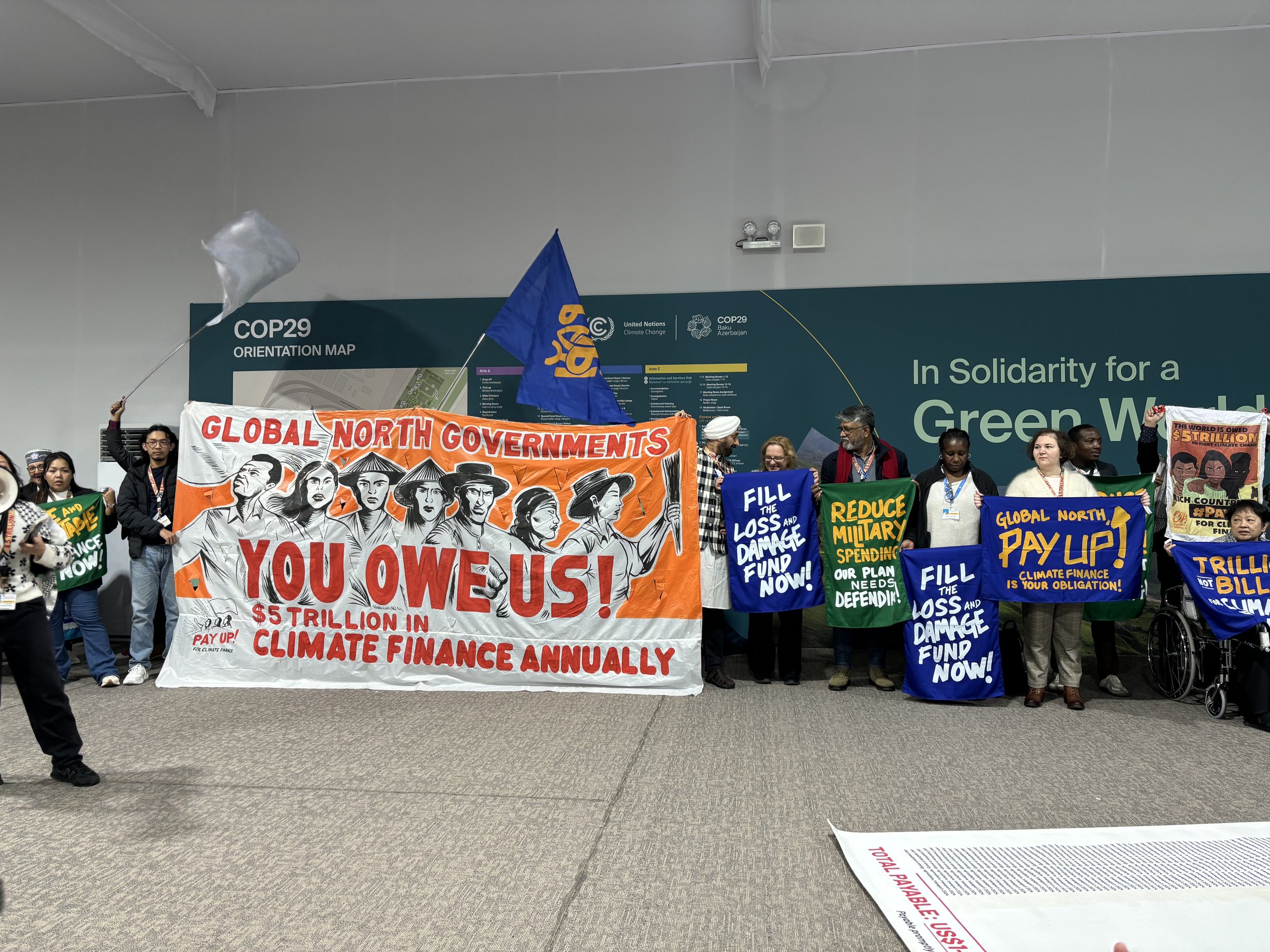Does COP deliver climate justice? We speak to climate activists at COP29
At COP29 in Baku, Azerbajan, the focus was on climate finance and the tagline was ‘in solidarity for a green world’. But what does solidarity mean to the countries most badly affected by climate change? Our Senior Director, Climate Diplomacy, talks to climate activists at COP to find out.
Many left Baku with a sense that – yet again – a high-profile multilateral negotiation has failed those most impacted by climate change. But amongst the disappointment there was – and will always be – a strong sense of community, a commitment to prioritising climate justice and a push for global solidarity.
Amongst the many talks and panel discussions I attended during my week at COP, I managed to catch up with a number of climate activists. I was keen to find out about how developed countries can act in solidarity towards the most climate vulnerable, and observer organisations – like Opportunity Green – can help drive global ambition.
Watch this video to hear some of their responses:
What’s the role of observer organisations at COP?
So what role can observer organisations play at COP, and what difference does their attendance can make? I spoke to Farzana Faruk Jhumu, UNICEF Youth Delegate from Bangladesh to find out.
“Observer organisations have a unique position at COP. We don’t get to negotiate, but at the same time we get to negotiate outside the room,” Farzana explained. “We get to talk to negotiators who are representing the people and tell them what our needs are, and they listen to us as they know we are the voice of the people.”
Harjeet Singh, Global Engagement Director at the Fossil Fuel Non-Proliferation Treaty, India, also highlighted the importance of organisations like Opportunity Green attending COP.
“I think what OG is doing is to make more awareness and to look at where are the policy gaps which need to be plugged right now,” he said. “That is important because many people who do not have a background of looking at some of these sectors [like shipping and aviation] are not putting enough pressure on industry to do more – and that’s what is needed. It’s also important to talk about solutions and regulations that are needed to decarbonise these sectors which are extremely damaging to the planet. We need solutions now.”
Climate activists at COP29
The impact of shipping and aviation
One of our main focuses at COP29 was on the potential to generate climate finance from the aviation and shipping sectors. I asked Green Climate Fund Youth Champion and Founder of Green Girls Initiative, Kenya, Elizabeth Wathuti, about how these industries have impacted her country.
“One of the most important things is the combination of the challenges and the impacts that these industries have had – for my country and countries like mine, it has been a reality. Right now we see the world is hitting new record temperatures, with heavily increasing rainfall and floods with a cost to lives and livelihoods,” she said.
“The combination of these things means that we need to make sure that we are heavily reducing the impact of emissions to make sure that communities like mine are able to adapt to these impacts. We need to make sure they have the capacity and resources they need to accelerate the locally-led solutions that can help them to deal with the realities of climate change. If we don’t make changes within industries like shipping it means that these impacts are only going to get more catastrophic.”
Standing in solidarity
So what does solidarity really mean? “In the climate justice movement we always talk about freedom – but we are not free,” said Farzana Faruk Jhumu. “When we talk about solidarity we want to make sure that the most vulnerable are being represented. A lot of the time they can’t be at the space and if we can represent them fully and put their voice forward, we can make sure that the population that we serve can get a better world.”
And the final word goes to Thando Lukuko, CAN International South Africa Node Coordinator, who sums up solidarity brilliantly when he says, “to me, solidarity means, today I support you, tomorrow you support me”.
Watch our video interviews with these climate activists.






